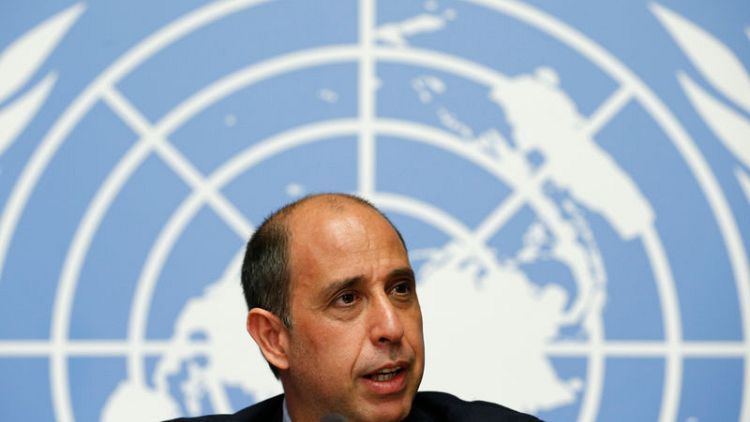By Josh Smith
SEOUL (Reuters) - China should not repatriate the increasing number of North Korean escapees it has arrested in recent months, because severe punishment faces those deported home, a United Nations human rights investigator said on Friday.
At least 30, if not more, North Korean escapees have been rounded up in raids across China since mid-April, families and activist groups told Reuters this month, in what activists have called a "severe" crackdown.
At the time, the Chinese foreign ministry told Reuters it was not aware of any arrests. Activists and lawyers say there is no sign yet that the North Koreans have been deported.
"Information suggests China may have recently strengthened the search for North Korean escapees in collaboration with the government of North Korea," said Tomas Ojea Quintana, a U.N. special rapporteur for human rights in North Korea.
"Repatriated North Koreans are at great risk of serious human rights violations, including torture," Quintana told reporters in the South Korean capital of Seoul.
"The government of North Korea criminalises those who cross the border irregularly."
Quintana said he had raised concerns over the fate of North Korean escapees detained in China, and discussed the issue with South Korean officials during his Seoul trip.
Escapees may face particularly severe punishment, including being sent to political prison camps, if they intended to defect to South Korea or if they were helped by Christian groups, he added.
The North Korean government plays a role in exacerbating the country's food shortages, he added.
North Korean officials have adopted "failing economic and agricultural policies," including central rationing systems plagued by shortcomings and discriminatory allocation, he said.
"Climate conditions, infertile land, and the negative impact of sanctions have contributed to further food security," Quintana said.
"At the same time the government is not developing conditions where people can securely access food through markets without being criminalised."
(Reporting by Josh Smith; Editing by Clarence Fernandez)
